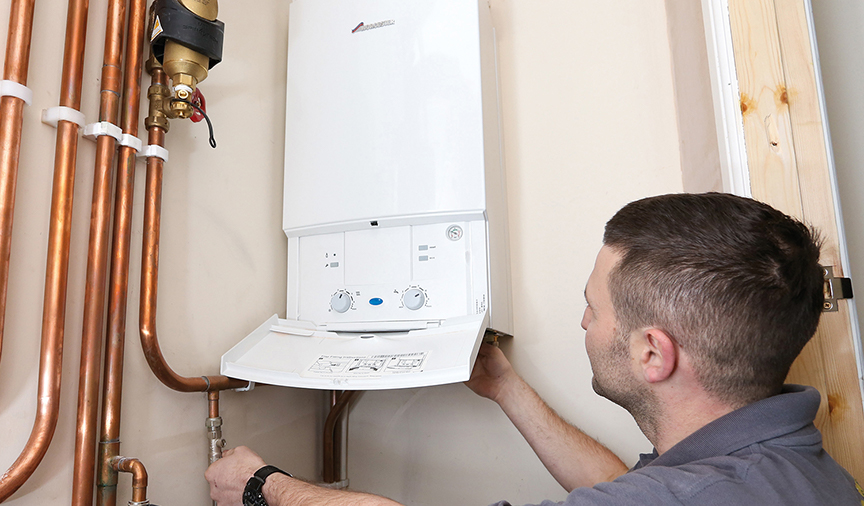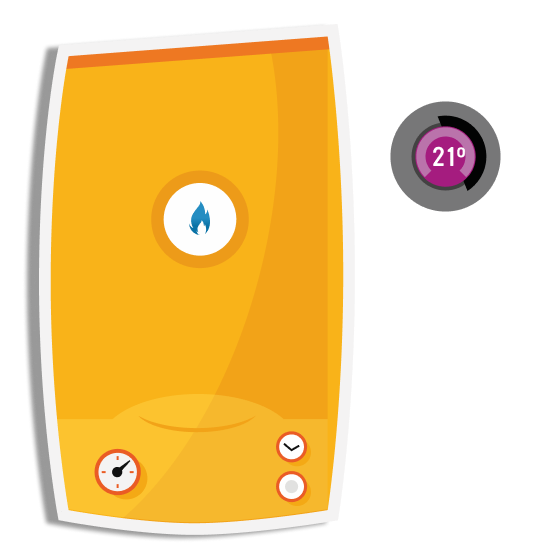What to consider when replacing your boiler
- Marco
- 02nd Jul 2022

02nd July 2022
When it comes to replacing a boiler, there are a variety of factors that you need to take into consideration. We’ll explore the critical factors in the boiler replacement process and help you work out how to choose a new boiler that’s perfect for your home and satisfies your heating requirements.
Size of Property
The size of your property has a direct relation to which boiler is the best fit for your home. Both conventional boilers and system boilers use a cylinder (conventional boilers also need a water tank) making them much more suitable for larger homes. The combi boiler, which is connected directly to the mains and as such doesn’t need either tank or cylinder, is a great choice for smaller properties. In addition, it’s not just the size of the property that you need to consider but also the size of the boiler. Large boilers are obviously unsuitable for small homes, while boilers that are more compact might not be the best fit for larger properties.
Although the temptation is often to replace a system or conventional boiler with a combi, sticking with your current boiler system (“like-for-like swap”) may well be the wiser decision. For instance, while you could free up space in your home by going for a combi boiler, you need to consider that remnants of the old boiler system such as water tank and/or cylinder need to be removed, which are likely to increase the cost of the installation. In addition, if your property has old radiators, a move to a combi boiler is often not the best choice, as the radiators may not cope well with the higher pressure. Not considering such factors means you may end up paying more than you would have if you stuck with your old boiler type.
Number of Bathrooms and Showers
As a rule of thumb, homes with more than one bathroom are more suited to system boilers and conventional boilers. These types of boilers allow you to run hot water in multiple bathrooms simultaneously, while combi boilers are unable to run two baths or showers at the same time because they heat cold water on demand. If you have a large family, a traditional boiler may end up being the most feasible option because the amount of available hot water is only restricted by the size of the hot water cylinder. Furthermore, the type of shower that you have may also play a role. For example, a combi boiler replacement is often incompatible with a power shower.
Water Pressure in the Area
The water pressure in your area is an important factor when it comes to replacing your boiler, as some types of boilers can’t produce sufficient pressure on their own. A conventional boiler, otherwise known as a traditional or regular boiler, is ideal for properties in areas with low water pressure because it can guarantee high water pressure through the use of a water tank (typically in the loft). A combi boiler, in turn, will probably not be the best fit for properties in those areas.
Brand
It’s important to consider the boiler brand when you replace your boiler. Different boiler brands have different levels of energy efficiency, a factor which can have a big effect on your gas and water bills. The energy efficiency of gas boilers is measured on a scale from A to G, with A-rated boilers being the most energy efficient choice as they transform at least 90% (or more) of the fuel that powers them into heat. If you’re boiler is more than 15 years old, it’s likely you have a G-rated one. These boilers are said to waste 30p of every £1 of gas, which ends up costing you more than £350 a year in unnecessary energy bills. It’s also worth remembering that the brand you choose will determine the price of a new boiler. Work out what you can afford and buy accordingly. A trustworthy boiler installation company should be able to offer affordable payment options allowing you to spread the costs of your replacement boiler over a long term.
Type of Property
The type of property that you have is an important consideration. For older properties which already benefit from a traditional boiler system it is often more cost-effective to keep the current boiler type since any changes to an existing boiler system will likely be minimal. Note that you will also consider whether you plan an extension to the property in the near future. With more rooms come more radiators, which may put a strain on the existing boiler type. You want to keep that in mind when it comes to choosing the kilowattage of your next boiler. If space comes at a premium, a system or conventional boiler may not be the best choice for a small house or flat.
Boiler Flow Rate
Your boiler flow rate represents how much water is able to flow through your boiler and how quickly it is able to come out of the faucet or tap. It isn’t always necessary to get the boiler with the highest flow rate; it all depends on your mains pressure. For example, if the mains supply to your home is only able to handle 10 litres of water per minute, there’s no use in buying a replacement boiler that has a flow rate of 13 litres per minute.
Boiler Flue System
Flues come in many different configurations and determine which types of boiler are most suitable for your home. The need of a horizontal concentric flue design aren’t the same as a vertical concentric flue design and vice versa. Before you start looking for a boiler replacement, you need to consider your boiler flue design.
Gas Safe Installation
The installation of a new boiler can be a stressful time. Remember, your boiler installation should only be conducted by a gas safe engineer. You can verify whether your engineer is on the gas safe register by asking to see his identity card – all registered engineers must carry one with them. You can also check online whether their registration number is valid. Make sure that your engineer’s qualifications are legitimate. Hiring an unqualified engineer to replace your boiler could have disastrous consequences, as well as invalidate your warranty.
As you can see, there are a number of important factors to consider when it comes to choosing the correct boiler type suitable for your home and heating requirements. If you would like to find which type of boiler is best for you, head over to our comprehensive boiler guide.

